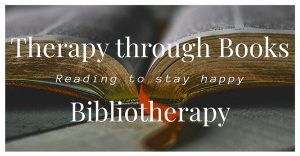Thank you to Elizabeth Wells, a PhD Candidate at UniSA, who has provided us with this preview of her work that considers the therapeutic benefits of reading for cancer patients.
 Receiving a cancer diagnosis is at best shocking, and at worst totally overwhelming. Patients are faced with a treatment journey where the destination cannot be predicted despite the best medical care; the uncertainty is huge, and the prevalence of distress among cancer patients is also huge. Clinical teams treating cancer patients holistically need to be aware of all possible adjunct therapies.
Receiving a cancer diagnosis is at best shocking, and at worst totally overwhelming. Patients are faced with a treatment journey where the destination cannot be predicted despite the best medical care; the uncertainty is huge, and the prevalence of distress among cancer patients is also huge. Clinical teams treating cancer patients holistically need to be aware of all possible adjunct therapies.
Numerous studies promote the benefits of bibliotherapy and reading for our physical and mental health, and they should therefore be part of the treatment toolkit. The cognitive impairment that frequently accompanies chemotherapy (chemo fog) denies the avid reader the opportunity to continue their regular habit of reading, with all the therapeutic benefits reading provides. As such, a read aloud program (that is, listening to books in real time) seeks to benefit the emotional wellbeing of cancer patients, whether that is by reconnecting the cancer patient to their love of reading, or helping lapsed or new readers discover the joy of reading and all its ensuing benefits.
Currently, no studies exist for the potential benefits of read aloud programs to the emotional wellbeing of cancer patients undergoing chemotherapy. It is the aim of this research to show that read aloud programs should be routinely included in the list of adjunct therapies.
